Baha'is in Iran have faced many forms of systematic discrimination and harassment over the past four decades, including deportation, educational restrictions, detention, harassment, torture, imprisonment and even execution. The burial of Baha'i citizens in Baha'i cemeteries is the lated twist; Baha’is are now being prevented from using officially allocated resting places, and families are instead being forced to bury their deceased at the mass graves of Iranians executed by the Islamic Republic in 1989 at the Khavaran Cemetery in Tehran.
Khavaran is a mass grave in Tehran where the bodies of thousands of people who were killed in political executions were interred.
Farhad Sabetan, a spokesperson for the Baha'i community based in San Francisco, US, told IranWire that burying the Baha'is on the bodies of those executed in the late 1980s was inhumane and disrespectful to those buried there.
"This is unacceptable to the Baha'i community," he said. "There is enough land to bury the dead in the [existing] cemeteries."
Simin Fahandej, Representative of the Baha’i International Community to the United Nations in Geneva, added that “The Baha'is of Tehran have been barred from burying their dead in [their part of] Khavaran Cemetery, which has enough burial space for at least the next 50 years. Representatives of Tehran’s Behesht Zahra Cemetery want to force [the Baha’is] to bury their loved ones in the mass graves of Khavaran. The Baha'is respect all deceased; at least let their loved ones be buried with dignity!"
From the earliest days of the Islamic Revolution, the Baha'is of Iran, as one of the largest minorities religion communities, came under pressure from the fledgling Islamic government. Execution, imprisonment, dismissals from public sector jobs, bans on higher education, confiscation of property and travel bans have been the products of the establishment of the Islamic Republic.
The government has not even spared the Baha'i dead – all Baha'i cemeteries in Iranian cities and villages were confiscated and destroyed. New buildings were built on the confiscated burial grounds in order to leave no trace of the Baha’i remains.
The leaders of the Islamic Republic believed that placing pressure on the Baha'is would force them to renounce their beliefs and convert to Islam. But their plan failed to materialize; the Baha’is did not abandon their religious beliefs, and in the following decade, the government resorted to other methods, such as economic pressures or the dissemination of propaganda about them through the public media.
The steadfastness of the Baha’is in holding to their religious beliefs posed a new problem for the Iranian government – which decided to attack them even beyond the grave. Baha'i cemeteries were confiscated and destroyed and they had no place to bury their dead. Iran’s Islamic laws barred non-Muslims from burying their dead in Muslim cemeteries.
According to many Baha'is, the Iranian government has always seen Baha'i burials and mourning ceremonies as a way for the Baha’is to promote their beliefs. Municipalities in various cities, on behalf of the government, have as a result often provided remote and difficult lands for the burial of Baha’is.
The routine difficulties that Baha’is have faced over the past 40 years in burying their loved ones has increased in recent years. Preventing the burial of 12-year-old Mahna in Tabriz, for example, or recovering the body of Shamsi Aghdasi Azamian, a Baha'i citizen from Damavand Gilavand village, in the Jaban desert around the village, four days after her burial in a Baha'i cemetery, preventing the burial of more than 40 Baha'is in Wadi-e Rahmat Cemetery in Tabriz, and the closure of the Baha'i Cemetery in Kerman, are among these pressures.
The latest of these measures, which has taken place in the past few weeks, has been to prevent the burial of Baha'i citizens in the Baha'i Cemetery in Tehran and to force families of the deceased to bury their loved ones in the Khavaran mass grave.
In recent days, a number of affected Baha'is have tried to persuade the authorities to allow them to bury their loved ones in the Baha'i cemetery, which has a large space allocated for Baha’i burials. The Baha’is have tried to accomplish this by declining to follow the new orders and by keeping the bodies of their loved ones in the morgue.
A family member of one of the deceased told IranWire that four new graves had been dug in the Khavaran cemetery and that the Baha'is had been told to bury the bodies in those graves.
Farhad Sabetan told IranWire: "Years ago, after the confiscation of the Baha'i cemetery in Tehran, called Golestan Javid, a piece of land in the Khavaran Cemetery was given by the government to the Baha'is to bury their loved ones. Hundreds of Baha'is have been buried in this land over the years. But in recent weeks, when a number of Baha'is came to bury their dead, they have been told they are no longer allowed to bury their dead on this ground."
According to Sabetan, the relevant authorities have offered two options to the families of the Baha'i deceased. One is to bury the dead in the mass graves of those executed in the 1980s in Khavaran. This option is not acceptable to the Baha'i community at all. Either these bodies are still there and they want to bury the bodies of the deceased Baha'is on top of them, or they have removed the bodies from there and bulldozed the place; in both cases, it is inhumane and it is disrespectful to those who are buried there."
The second option is to bury the bodies of the dead between the graves of previously interred Baha’is. “This is also not acceptable to the Baha'i community ... This is an insult to the deceased as there is enough land to bury the dead in the cemetery,” Sabetan said.
Sabetan said none of these options were acceptable to the Baha'i community because the Baha’is had great respect for those who had passed away.
"To this day, Baha'is in the Islamic Republic have been deprived of all their civil rights and the issue of the burial of the dead is becoming more and more problematic every day. All of this has led to the situation of the Baha'is in Iran to a point where they no longer even have a place to bury their dead in their own homeland,” he added.
Asked what the reaction of the families of the deceased and the Baha'i community has been, Sabetan said: "As far as we know, the Baha'is have asked the relevant authorities to allow them to bury their loved ones in the previous cemetery, but so far no burial permit has been issued by the authorities."
Farhad Sabetan said: "This has been the approach of the Baha'i community since the beginning of the Revolution, which consists of referring to the authorities in the country as soon as there is a problem. Baha'is never want to make their own government feel ashamed, but unfortunately, the authorities have not heeded any request by the Baha'is. Eventually, the Baha'i community is forced to take these injustices to the international community and ask them to help implement the rights of Iranian Baha'is in Iran. Baha'is call on the international community to convince the Iranian government of the importance of respecting the rights of Baha'i citizens. In fact, the only legal way left for the Baha'is is to seek redress from the international community; no other way is open to them.”
“Unfortunately, the Iranian government does not show mercy to the Baha'i dead so that they can rest, at least after death, and live their eternal lives,” he added.
Related coverage:
No Rest for the Dead: Iran’s Campaign Against Baha’i Cemeteries
Protecting the Fatherland by Desecrating Cemeteries — Since 1979
visit the accountability section
In this section of Iran Wire, you can contact the officials and launch your campaign for various problems




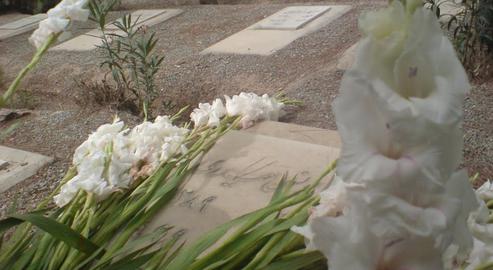
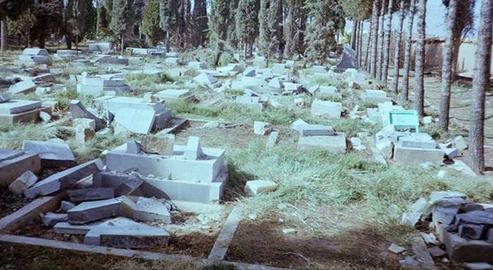
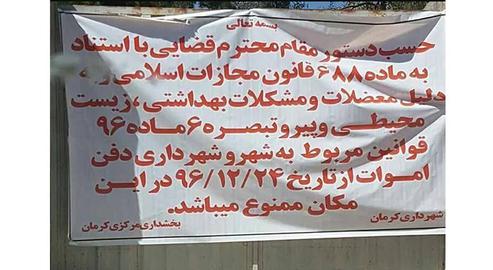
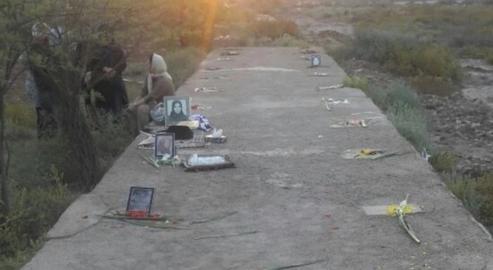
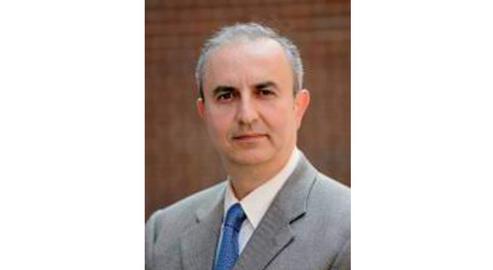

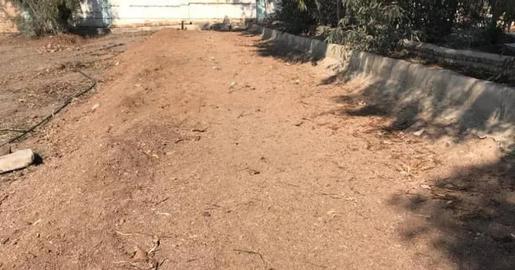
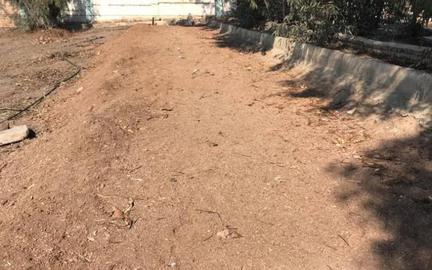

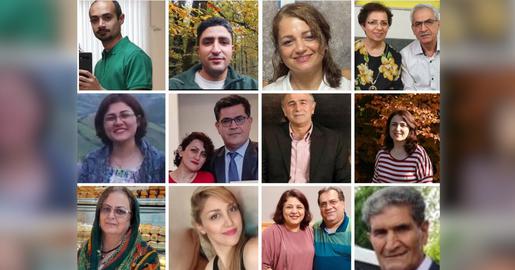


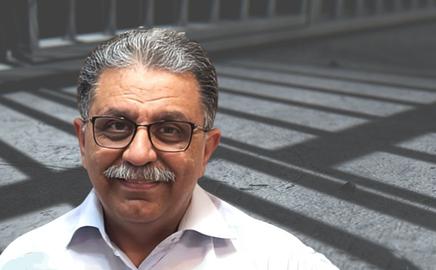

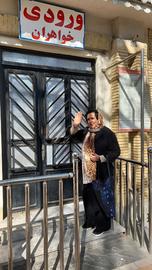
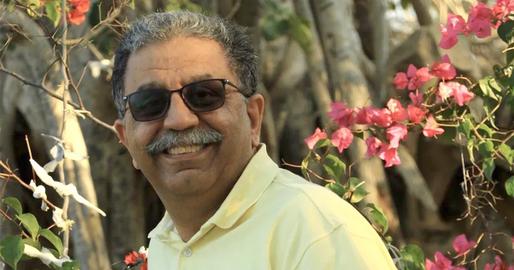



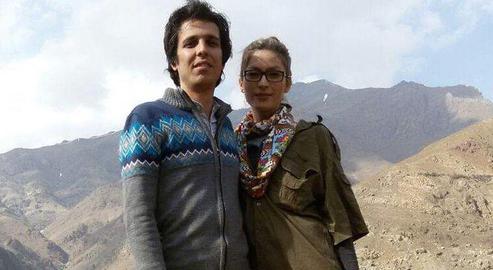
comments